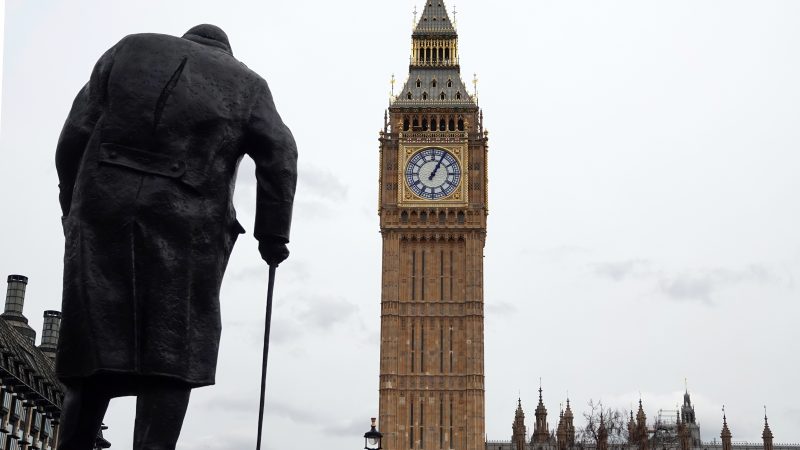
This weekend the clocks go back and, just like that, the evenings get darker, the days feel shorter, and winter gloom sets in.
But what if we didn’t have to lose all that evening daylight? What if, instead, we made time work for us?
I believe we could, if Britain channels the wartime spirit of the 1940s and introduces double British Summer Time, otherwise known as “Churchill Time.”
READ MORE: ‘Tony Blair is wrong again on clean power – and on what voters really want’
It would create jobs and growth, cut carbon, save money on energy bills and – if Rachel Reeves is reading this – do it all without costing a penny.
A wartime idea fit for a climate crisis
Parliament has been tinkering with the clocks for more than a century. The first British Summer Time Act passed in 1916, was inspired by campaigner William Willett, who complained that too much daylight was being “wasted” while people slept. He even wrote a pamphlet called The Waste of Daylight to make his case.
That led to today’s system – Greenwich Mean Time in winter and GMT plus one hour in summer.
Subscribe here to our daily newsletter roundup of Labour news, analysis and comment– and follow us on Bluesky, WhatsApp, X and Facebook.
But as Britain faced peril in the Second World War, Winston Churchill went further and moved our clocks two hours ahead of GMT in summer and one hour ahead in winter. Britain was under pressure, and radical ideas were needed. By pushing sunset later and making better use of daylight we saved energy reducing pressure on supplies.
Today, we face a very different emergency – the climate crisis. And once again, we need bold thinking. ‘Churchill Time’ could be one of those ideas.
Cutting carbon and saving money
The logic is as clear now as it was then. Lighter evenings mean homes and businesses switch on lights and heating later, reducing demand on the grid, and helping everyone cut their bills.
Researchers at the University of Manchester, who I’ve been working with estimate that ‘Churchill Time’ could cut up to five gigawatts from peak electricity demand and save households more than £400 a year. That is a huge saving in both emissions and cash. Experts at the University of Cambridge suggest one extra hour of evening daylight in winter could reduce carbon emissions by around 447,000 tonnes a year, the equivalent of taking 50,000 cars on a road trip around the world.
During a climate crisis, ‘Churchill Time’ offers a practical, no-cost measure that could deliver real and measurable results.
Safer streets and stronger communities
The benefits go well beyond saving energy. Every year, road collisions rise after the clocks go back. The Road Safety Foundation, which supports ‘Churchill Time’, estimates that lighter evenings could reduce accidents and save up to 40 lives a year, easing pressure on the NHS.
Lighter evenings encourage people to get out more, visiting parks, cafés and local shops. That means busier high streets, more customers for small businesses, and a welcome boost for tourism, especially during the October half term. It strengthens communities and supports the economic growth our Government rightly prioritises.
It’s why organisations like Clacton Pier are on board. The British Association of Leisure Parks, Piers and Attractions says the change could add £3.5 billion a year to the visitor economy. For seaside towns and local attractions, that extra daylight could make a world of difference.
A health and happiness dividend
There’s a wellbeing case too. We know reduced sunlight affects mood and mental health. The NHS notes that darker days can lower serotonin levels and contribute to depression. Keeping our evenings brighter for longer could be a small but meaningful step towards improving national wellbeing and building a healthier, happier country.
Children could play outside for longer. Families could enjoy the park after school or work. More daylight means more opportunity to connect, to move, to live well.
Time for Labour to lead
This week I held an event in Parliament and quizzed the Prime Minister at PMQs to spark a serious conversation about changing time itself.
Share your thoughts. Contribute on this story or tell your own by writing to our Editor. The best letters every week will be published on the site. Find out how to get your letter published.
‘Churchill Time‘ costs nothing, yet it could cut carbon, reduce energy bills, boost growth, make our roads safer, and brighten up so many lives.
I think it’s an idea whose time has come again.
-
- SHARE: If you have anything to share that we should be looking into or publishing about this story – or any other topic involving Labour– contact us (strictly anonymously if you wish) at [email protected].
- SUBSCRIBE: Sign up to LabourList’s morning email here for the best briefing on everything Labour, every weekday morning.
- DONATE: If you value our work, please chip in a few pounds a week and become one of our supporters, helping sustain and expand our coverage.
- PARTNER: If you or your organisation might be interested in partnering with us on sponsored events or projects, email [email protected].
- ADVERTISE: If your organisation would like to advertise or run sponsored pieces on LabourList‘s daily newsletter or website, contact our exclusive ad partners Total Politics at [email protected].




More from LabourList
‘Tackling poverty should be the legacy of Keir Starmer’s government’
‘The High Court judgment brings more uncertainty for the trans community’
‘There are good and bad businesses. Labour needs to be able to explain the difference’